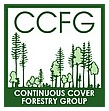More than 50 organisations, led by the Woodland Trust, are leading UK society in a call for a charter that will ensure that people and trees can stand stronger together in the future. This charter, strengthened by support from all corners of society, will provide guidelines and principles for policy, decision-makers, businesses, communities and individuals.
CCFG is pleased to be supporting a consultation, hosted by Sylva Foundation, that will enable woodland owners and custodians across the UK to help define the 2017 Charter for Trees, Woods and People.
This consultation is the only activity specifically aimed at ensuring the views of woodland owners or custodians are reflected in the Charter. More than two-thirds of woodlands are held in private hands, so it is vital that the voices of woodland owners/custodians are reflected in the charter.


